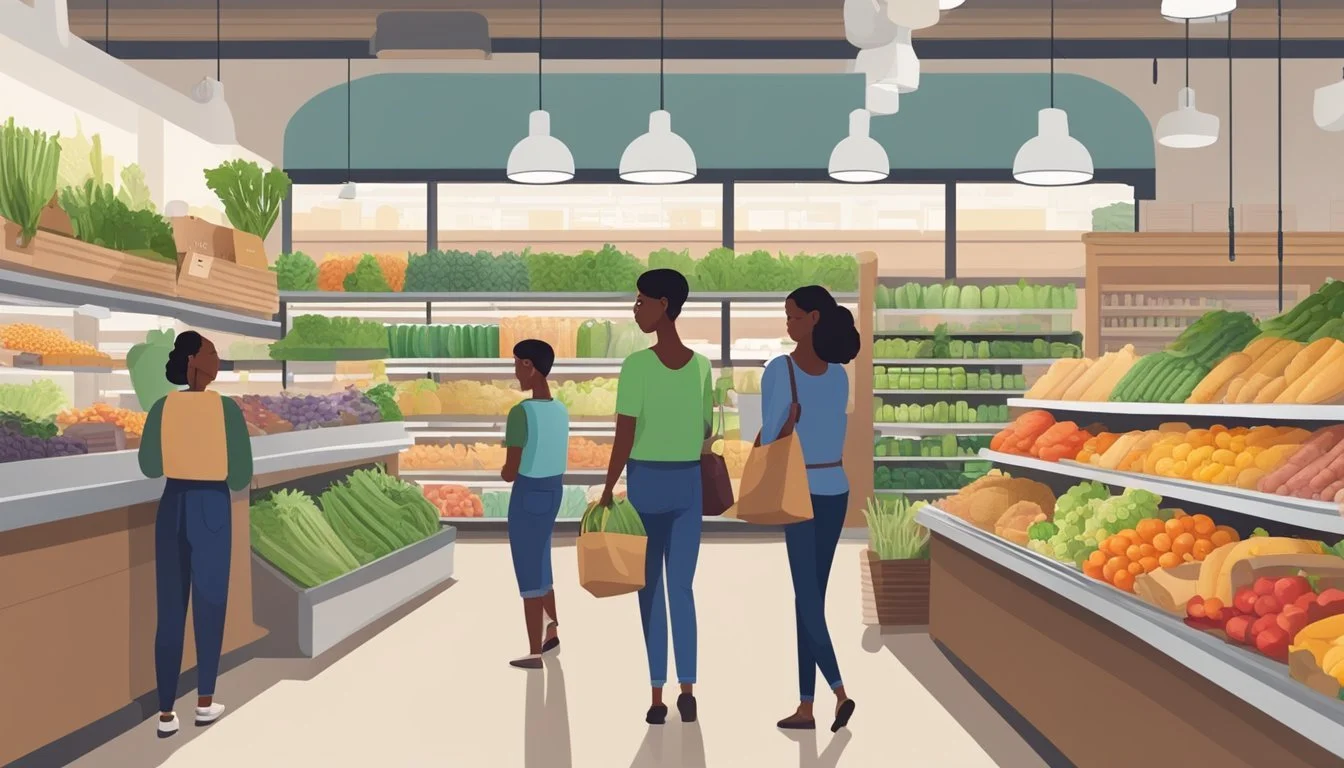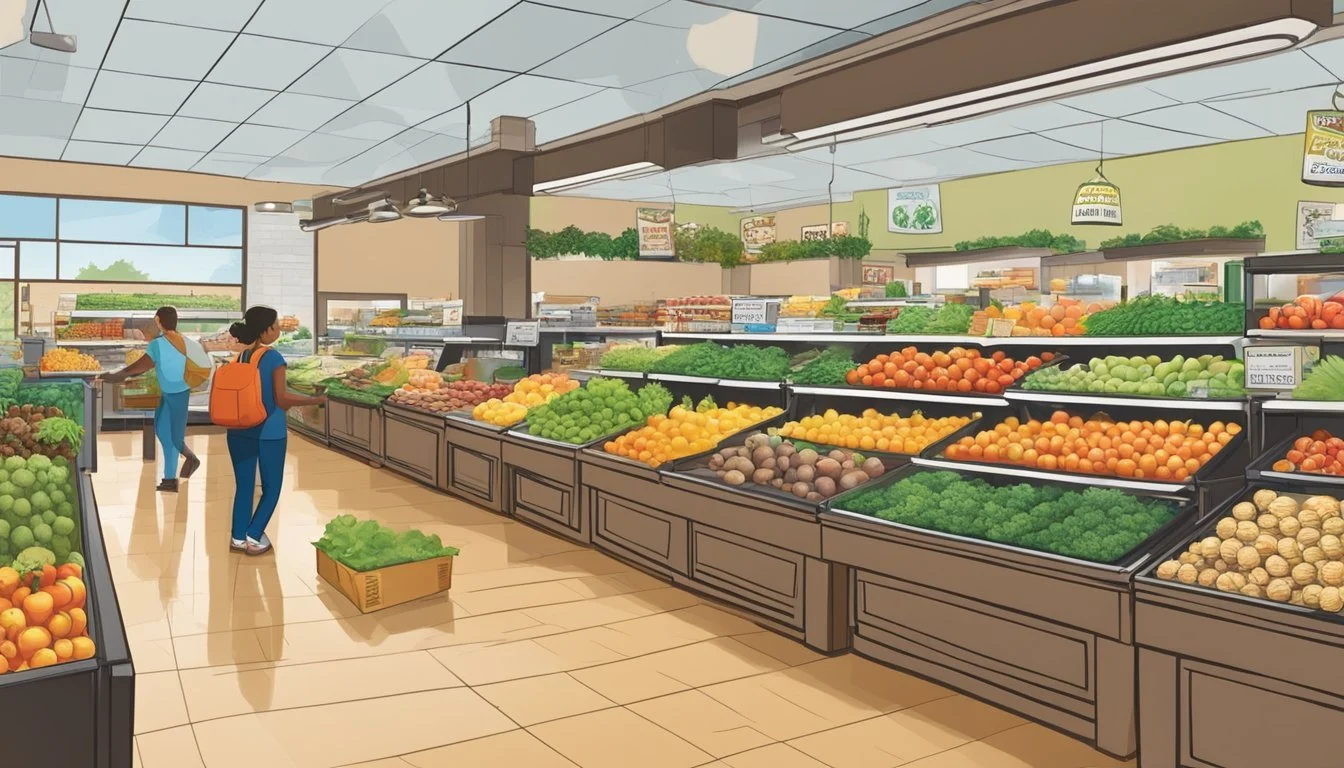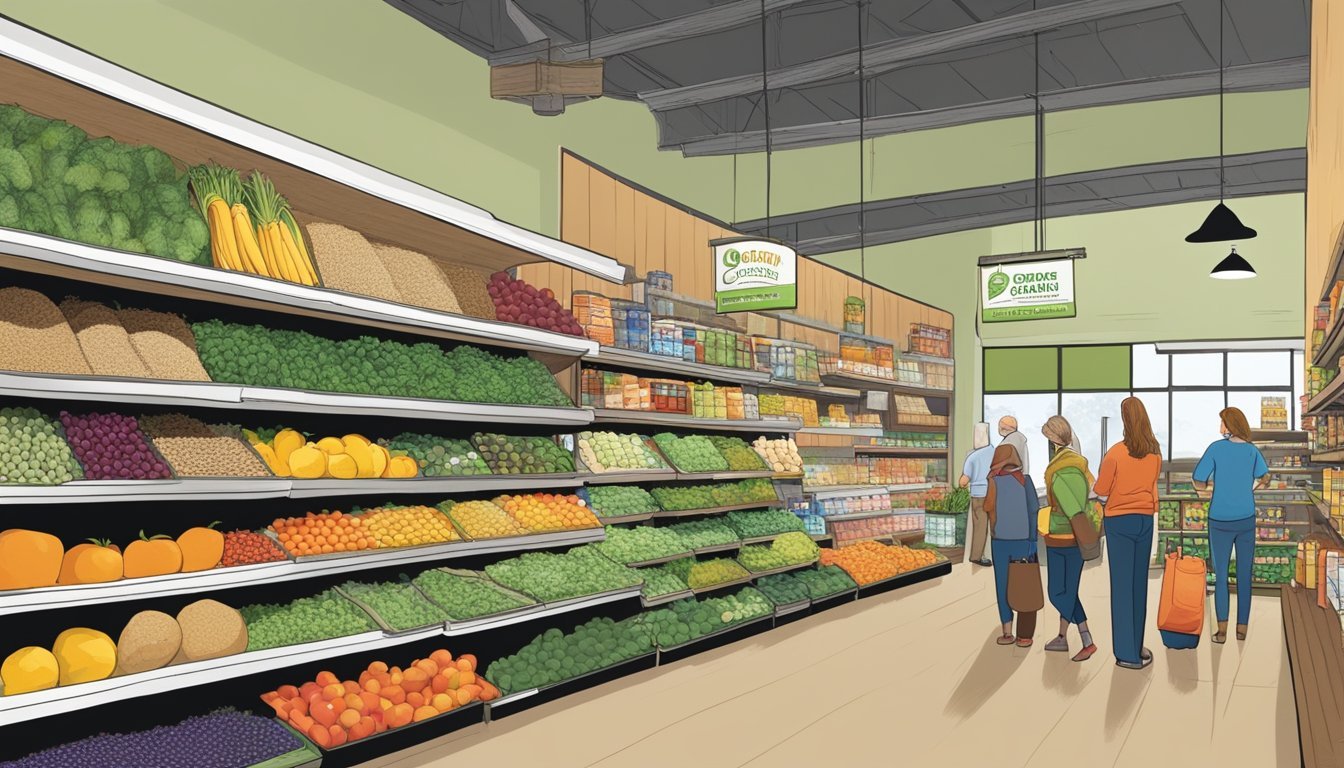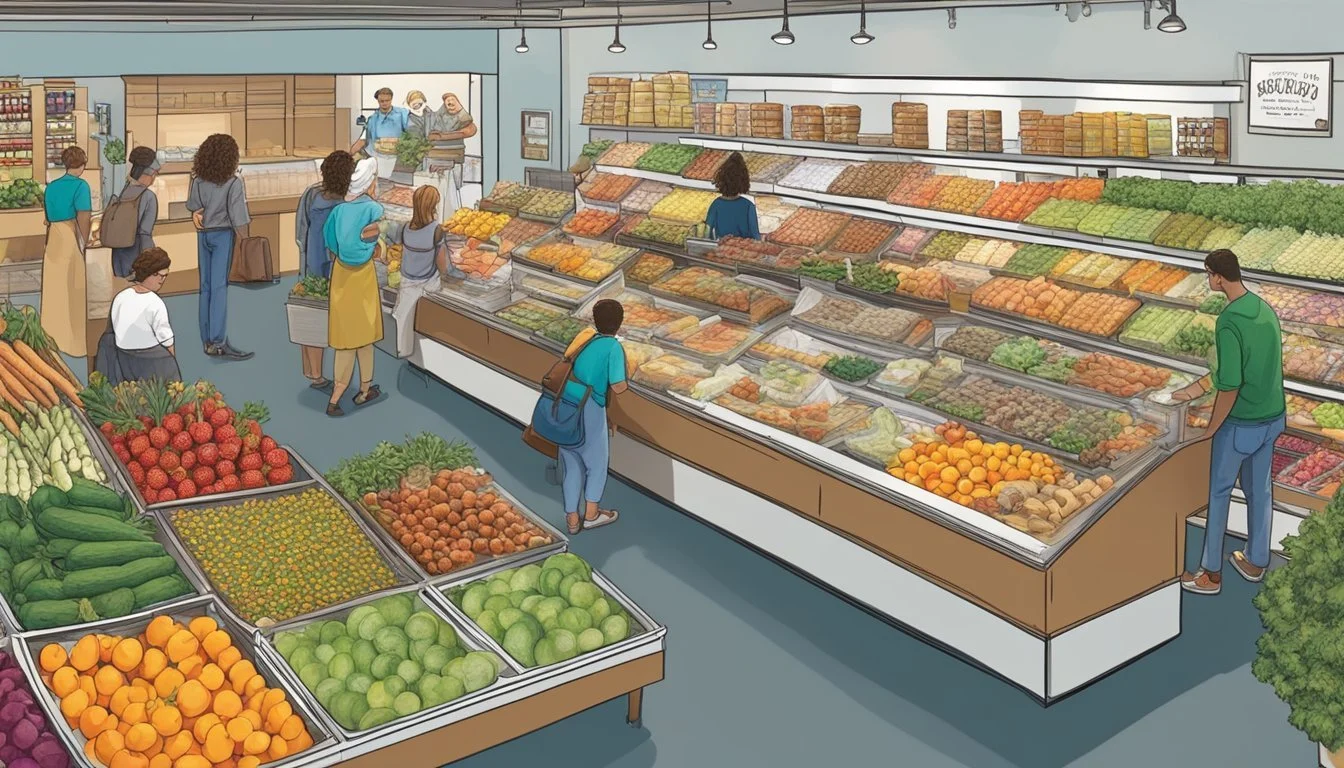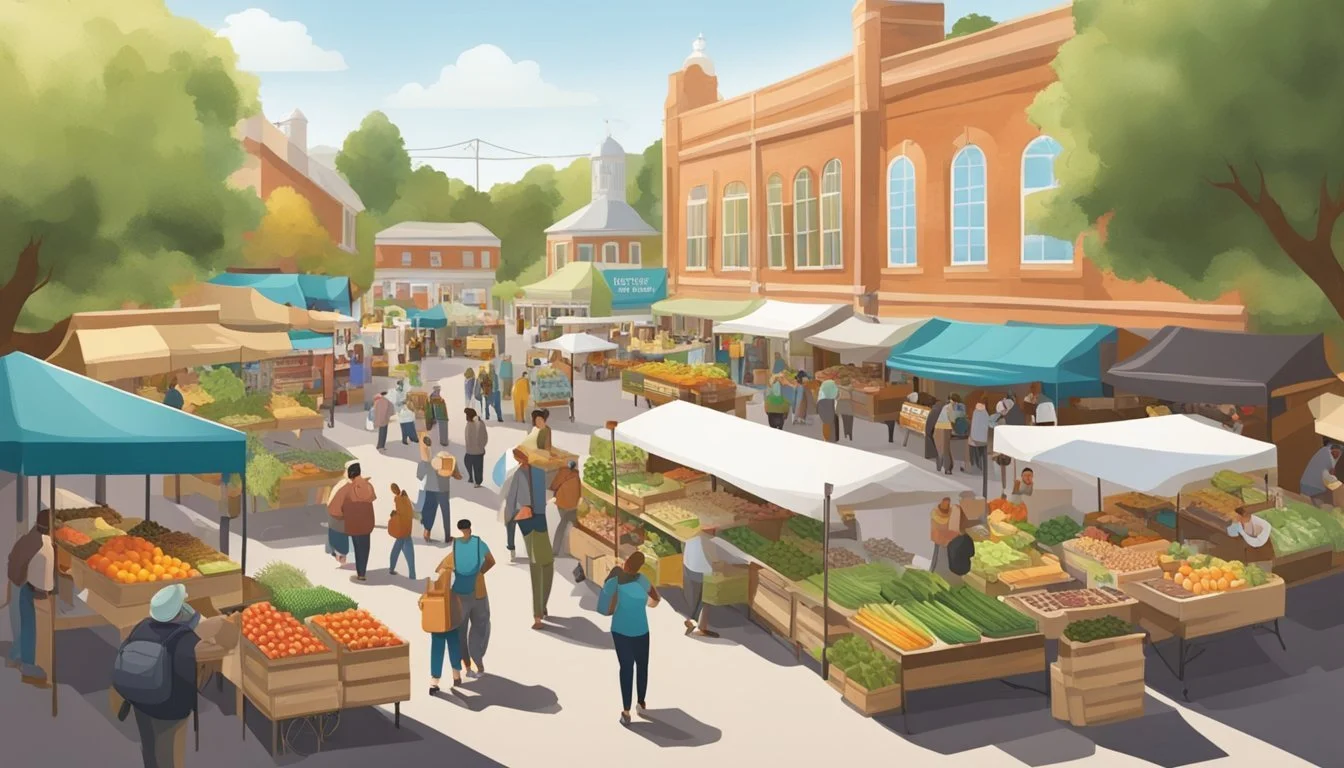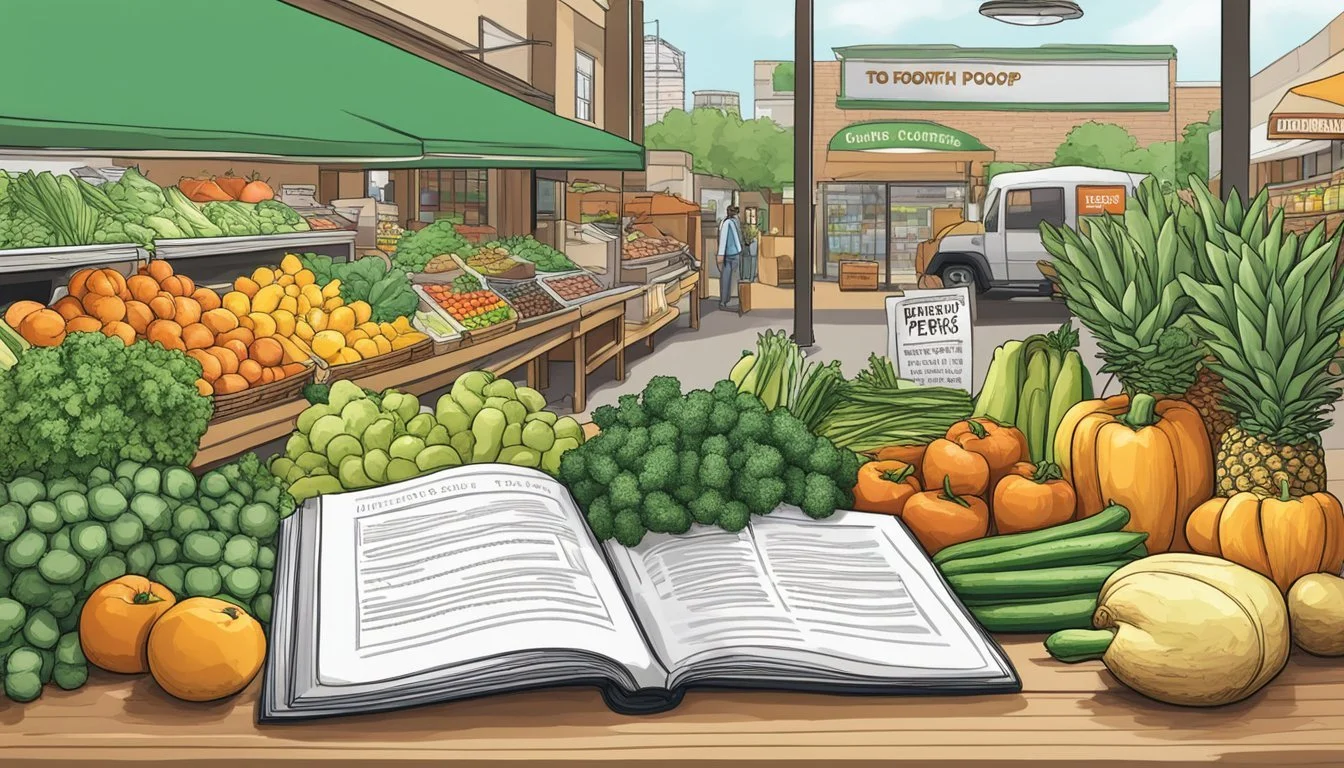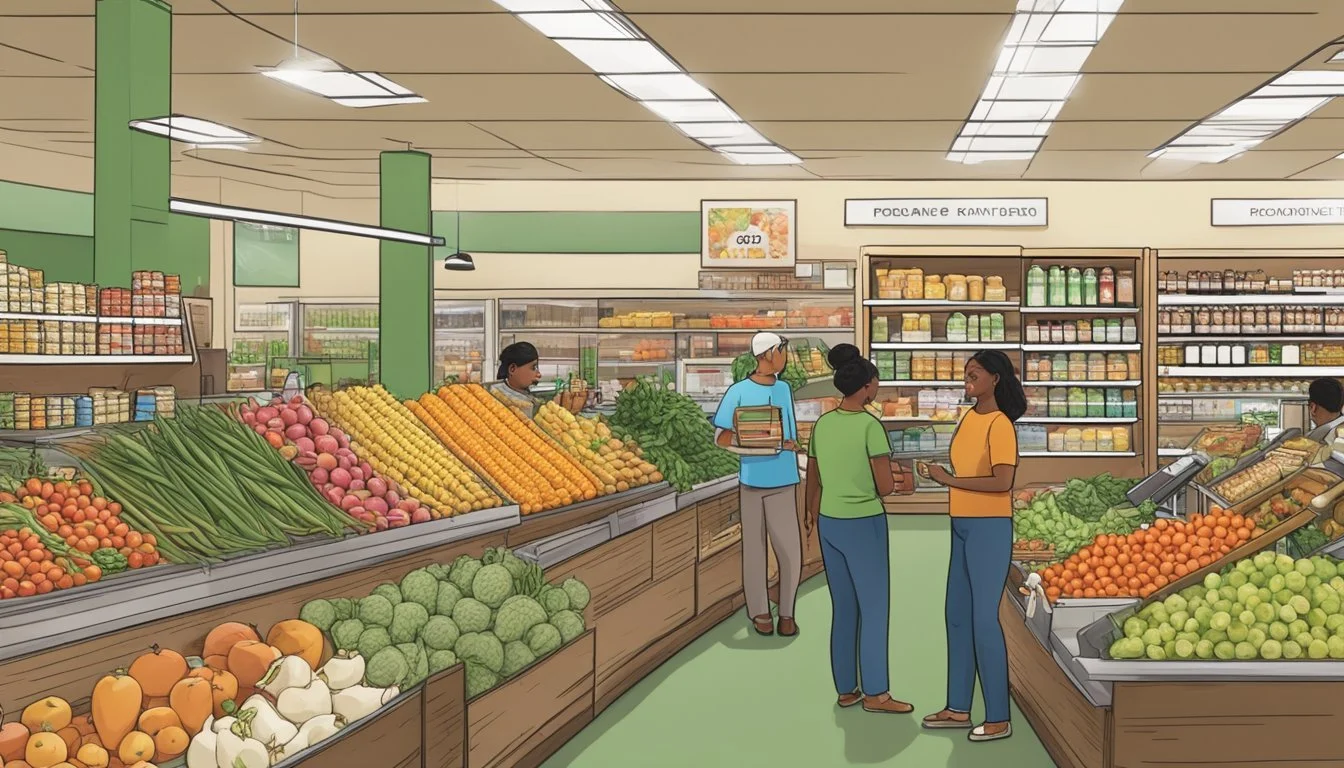Guide to Food Co-Ops in Fort Worth, TX
Your Essential Resource
Food cooperatives, or food co-ops, have become increasingly popular in Fort Worth, Texas, offering residents an alternative way to shop for groceries. Emphasizing local, organic, and sustainably-produced items, these co-ops are more than just grocery stores—they are community hubs where consumers can both invest in and benefit from a shared commitment to healthier food and local economies. By choosing to shop at a co-op, individuals in Fort Worth can directly support local farmers and producers, which, in turn, helps to ensure that the community has access to fresh and nutritious food.
Unlike conventional grocery stores, food co-ops in Fort Worth typically operate on a membership basis, although non-members can also often shop at these establishments. Members usually have a say in the business decisions of the co-op and can enjoy discounts and other benefits. Additionally, many of these co-ops actively engage in community events and education programs to foster a greater understanding of food sources, nutrition, and sustainable practices. This engagement provides a unique connection between consumers and their food that isn't typically found in traditional retail environments.
In the Fort Worth area, several food co-ops and similar initiatives stand out for their dedication to providing healthful options and supporting local agriculture. For instance, there are co-ops that offer regular baskets of fresh, seasonal produce, along with meat and other grocery items. These co-ops often feature flexible options, with different payment plans for conventional or organic produce, and pickups at various locations to accommodate the geographically dispersed community. Through their commitment to quality and community, Fort Worth's food co-ops are redefining the food shopping experience, contributing to a more sustainable and health-conscious Texas.
Understanding Food Co-Ops
Food cooperatives, commonly known as food co-ops, offer a distinct approach to buying groceries that emphasizes community benefit and member engagement. This section will unpack what a food co-op is, outline the advantages of joining one, and describe the typical culture and community involvement they foster.
What Is a Co-Op?
A food co-op is a grocery entity that operates on a cooperative model, meaning it is owned and controlled by its members—the customers who utilize its services. Each member holds a share and typically has a say in the business decisions of the co-op, which starkly contrasts with traditional grocery store governance that prioritizes investor interests.
Benefits of Joining a Food Co-Op
Economic advantages: Members of a food co-op commonly benefit from better pricing on high-quality goods due to the collective purchasing power. They may also receive dividends based on the co-op's profits and their own purchasing activity throughout the year.
Quality and value: As co-ops emphasize product quality, they often stock items from local producers, ensuring freshness and supporting the local economy. Members have a voice in the selection, leading to a range of products that aligns with their preferences for organic, sustainable, or locally produced goods.
Educational opportunities: Food co-ops are invested in member education, offering information about nutrition, food sourcing, and cooking classes. This commitment helps members to make informed choices about their consumption and overall lifestyle.
Community and Culture at Co-Ops
The ethos of a food co-op extends beyond simple commerce. These entities are deeply integrated into the local community, nurturing a culture of camaraderie and shared values. They are centered around bringing people together, fostering a sense of belonging while also contributing to local initiatives and sustainable practices. Food co-ops encourage active participation and democratic management, where every member's voice can influence the cooperative's directions and priorities.
How to Join a Food Co-Op
Joining a food co-op in Fort Worth, TX, involves understanding the different types of memberships available and following the specific sign-up processes required by the co-op one chooses to join.
Membership Types
Food co-ops typically offer various membership categories to accommodate the needs of the community. One common type is the working membership, where members contribute labor in exchange for discounts on purchases. Members might be required to work a set number of hours weekly and pay annual dues. The dues may vary from one co-op to another but generally range from $24 to $48 per person annually.
Another membership model is the member-owner concept. Individuals become co-owners of the co-op through a Capital Investment, often refundable, which can be paid all at once or in installments. For example, the initial investment might be $100, with a one-time join fee.
Sign-Up Processes
To sign up for a food co-op membership, prospective members must typically visit the co-op in person. The sign-up process usually requires the following steps:
Stop by the co-op's Customer Service Desk.
Fill out a membership application form.
Select the type of membership and agree to any required member labor contributions.
Pay the necessary fees, join fee, and any Capital Investment if opting for member-owner status.
Prospective members should also provide their contact details, including an email address, to receive updates, newsletters, and other communications from the co-op. It is advisable to check with the specific food co-op for any additional requirements or alternative sign-up methods, such as online registration if available.
Local Food Systems
Fort Worth, Texas, maintains a committed stance towards strengthening its local food systems. This commitment is evident through the support of local agriculture, the adoption of organic farming practices, and the emphasis on sustainability and environmental benefits.
Local Agriculture
Local farms around Fort Worth play a crucial role in supplying the community with high-quality produce, including a variety of vegetables, fruits, and herbs. By focusing on the production of organic produce, these farms not only contribute to the health of consumers but also support the local economy. Seasonal availability of fresh produce ensures that the community has access to food that is both nutrient-rich and flavorful.
Local Farms: Expansive support for local farmers who cultivate seasonal fruits and vegetables.
Healthy Eating: Access to nutrient-dense and fresh organic produce encourages healthy eating habits.
Organic Farming Practices
Organic farming practices are integral to the local food system in Fort Worth, as they ensure that the food is grown without the use of harmful chemicals. Local farms adhere to organic standards to produce high-quality organic fruits and vegetables. The dedication to organic principles guarantees that the produce is not just healthy but also sustainable.
Chemical-Free: Organic farmers steer clear of synthetic pesticides and fertilizers.
Organic Produce: Commitment to maintaining soil health and biodiversity through organic cultivation methods.
Sustainability and Environment
The environmental impact of food production is a significant concern. In Fort Worth, there is a growing emphasis on green farming methods that prioritize sustainability. These practices reduce carbon footprints, conserve water, and enhance soil health. The local food systems strive to create a balance between agriculture and planetary wellbeing, understanding that a sustainable approach to farming is essential for the future.
Sustainability: Local food systems focus on long-term environmental health.
Environmental Benefits: Green farming methods contribute to a reduction in overall ecological impact.
Fort Worth Co-Op Directories
In Fort Worth, TX, consumers have access to a variety of food co-operatives, offering fresh and local produce through convenient pick up locations. These directories provide insight into downtown and suburban options for those looking to support local agriculture and enjoy nutritious food.
Downtown Fort Worth Options
In the heart of Fort Worth, the LocalHarvest directory lists Off the Farm Food in Flower Mound as a notable provider of grass-fed beef, pastured chicken, lamb, and pork. They ensure quality and healthful foods direct from local sources with convenient pick up times for their community.
Pick Up Location: Flower Mound, TX
Products: Beef, chicken, lamb, pork, eggs, cheese
Delivery: Not indicated
Contact: Not provided
Suburban Fort Worth Locations
Beyond the city center, there's a broader range of co-ops. Your Health Source from Denton, TX, family-owned and operated, prides itself on offering fresh, quality, and affordable food. They stand out by providing discounts, accepting donations, and accommodating sponsorship requests.
Pick Up Location: Denton, TX
Products: Fresh, nutritious food (assorted)
Delivery: Not indicated
Contact: (817) 793-3509
For residents preferring closer locations to Dallas or in the suburbs of Fort Worth, Bountiful Baskets Co-op offers a practical solution. Customers can pick up a wide selection of fruits and vegetables at designated pickup times, increasing their access to organic options.
Pick Up Location: Fort Worth, TX (various)
Products: Fruits, vegetables
Delivery: Not indicated
Contact: Not provided
These directories are vital in connecting consumers with local food sources in both downtown Fort Worth and the surrounding suburbs.
Seasonal Offerings in Fort Worth
Fort Worth's food co-ops offer an impressive selection of high-quality, fresh produce. Shoppers can expect to find a variety of fruits and vegetables that change with the seasons, ensuring peak flavor and nutrition.
Seasonal Fruits & Vegetables
Spring: In the spring, the co-ops typically brim with leafy greens like lettuce, which are in their prime. Patrons can also find a variety of beets, known for their earthy sweetness as the weather begins to warm.
Summer: As the summer heat sets in, peppers and tomatoes start to take center stage. Their vibrant colors and robust flavors reflect the bounty of the season.
Fall: The arrival of fall is heralded by the presence of pears, offering their unique, juicy taste that pairs well with both sweet and savory dishes.
Winter: While winter might seem sparse, many co-ops still supply root vegetables and hearty greens that can endure the colder weather.
Year-Round Availability
Fort Worth co-ops work hard to provide fresh, quality produce throughout the year. While some fruits and vegetables are seasonal, staples such as tomatoes and lettuce can often be found regardless of the season, thanks to local greenhouses and careful sourcing. Shoppers value this consistent access to fresh and nutritious ingredients for their culinary needs.
Organic Meat and Dairy
In Fort Worth, TX, consumers can find a diverse selection of organic meats and fresh dairy products derived from animals raised on local farms practicing regenerative agriculture. These farms are committed to providing goods that are not only natural and nutritious but also uphold animal welfare and sustainable farming principles.
Types of Organic Meat
Beef:
Grass-Fed Angus
Grass Finished Beef
Bison (What wine goes well with bison?)
Poultry:
Free-Range Chicken
Pastured Chicken
Pork:
Pastured Pork
Other Meats:
Lamb
The meats available in the Fort Worth area often come from animals that have been given ample outdoor space and a natural diet. Grass-fed beef is a staple, providing a leaner and potentially healthier option in comparison to grain-fed counterparts. Bison and lamb are less common but equally esteemed for their quality and flavor. Free-range and pastured chickens reflect an ethical choice for poultry, which also extends to farm fresh pastured eggs.
Fresh Dairy Products
Milk & Cream Products:
Raw Milk
Cream
Cheese Varieties:
Raw Milk Cheese
Artisan Cheeses
Dairy products come from cows and goats that graze freely, leading to milk that's rich in nutrients and flavor. Cream and raw milk represent the freshest states of dairy, often sold directly to consumers via co-ops. Cheese lovers can delight in organic varieties, particularly raw milk cheese noted for its depth of flavor and textural variety. Clean, natural practices ensure that these dairy offerings come from healthy animals treated with care.
Fort Worth residents have the privilege of indulging in organic and clean meats and dairy with confidence, knowing they support local farming and sustainable practices.
Food Co-Op Shopping Guide
Food co-ops in Fort Worth, TX, offer shoppers options for purchasing high-quality groceries, often with a focus on local and organic products. They provide an alternative to traditional grocery stores by emphasizing bulk purchases and member control, with opportunities for discounts.
Bulk Purchases
When shopping at a food co-op, customers can take advantage of bulk purchases. This option allows individuals to buy larger quantities of staple items such as rice, oats, and dry goods, which can lead to significant savings. Bulk purchasing also reduces packaging waste, aligning with environmentally conscientious practices that many food co-ops support.
Bulk Staples:
Rice
Oats
Dry Goods (flour, sugar, etc.)
Customers should be prepared with their own containers when purchasing bulk items to further minimize their ecological footprint.
Weekly Grocery Planning
For those planning their weekly groceries, food co-ops are well-suited to provide fresh, often organic pantry items, alongside essentials like butter and other dairy products. Members may receive discounts on grocery items, and since food co-ops typically offer a curated selection of goods, the products are frequently of higher quality.
Weekly Staples:
Organic Pantry Items (spices, oils, etc.)
Dairy (milk, cheese, butter)
Shoppers can benefit from the regular offerings of fresh produce and locally-sourced goods, contributing to the local economy and encouraging sustainable farming practices.
Community Events and Workshops
Food co-ops in Fort Worth offer a variety of community-oriented events and workshops aimed at enhancing food education and cooking skills. These gatherings serve as a cornerstone for local food culture, fostering a sense of togetherness and shared learning among members.
Food Education
Fort Worth food co-ops hold regular educational sessions focusing on the nutritional aspects of food, organic practices, and the importance of local farming. Participants have the opportunity to learn about:
The benefits of eating seasonally
Understanding food labels and ingredients
How to make sustainable food choices
These workshops are often either free or available at a nominal fee to co-op members and sometimes to the general public, emphasizing community inclusion and food awareness.
Cooking Classes
Cooking classes offered by the co-ops are not just about following recipes; they aim to equip individuals with skills to prepare healthy meals using local produce. Key offerings include:
Hands-on instruction in making whole-food-based dishes
Tips on meal planning and preparation
Techniques for preserving food to extend its shelf life
Through these classes, members gain practical experience and knowledge to create nutritious meals, thus supporting their health and the local food system. Cooking classes are typically led by experienced chefs or passionate members who bring a wealth of knowledge to the community table.
Supporting Local Producers
In Fort Worth, there is a thriving movement of support for local farmers, ranchers, and artisan food producers. By choosing local, residents ensure the sustainability of the community's food sources and contribute to the local economy.
Spotlight on Local Farms & Ranchers
The Fort Worth area benefits from the presence of several local farms and ranches, including the likes of The Farmacy on the River in Glen Rose, offering not just organic produce but also meats, eggs, and health consultations. Organizations such as Cross Timbers Food Cooperative cater to North Central Texas by connecting sustainable producers with consumers. The Greer Farm near Daingerfield is another standout, where one can find locally produced hay, fruit, berries, vegetables, and pasture-raised cattle.
Artisan and Craft Food Sources
Fort Worth's food scene is bolstered by family-owned businesses that bring distinctive flavors and products to the table. From farm-to-table restaurants sourcing directly from local farms, to bustling farmers markets like the one hosted by Willow Bend, freshness and quality are at the heart of Fort Worth's artisan food landscape. The area also celebrates craft breweries, wineries, and small-batch distilleries that each have their own unique flair. Moreover, food trucks offering farm-to-table options and artisan bakeries using locally sourced ingredients further diversify Fort Worth's food offerings. Cideries also contribute to the local craft beverage scene, providing yet another option for those seeking out local, hand-crafted products.
Online Presence and Resources
Food co-ops in the Fort Worth area capitalize on various online platforms to facilitate access to their products and services. They maintain an active online presence, with well-designed websites and dynamic social media interactions that bolster community involvement and customer engagement.
Social Media
Many co-ops maintain Facebook pages where they post updates, offer community support, and share information about their products. Through Facebook, members can sign up for events, check the co-op's hours, and engage with the co-op's community. This not only creates a strong sense of community but also serves as a tool for transparency and customer service.
Co-Op Websites
The websites of food co-ops act as comprehensive resources for both potential and current members. Interested individuals can sign up for newsletters, become members, and even engage in cooperative governance by participating in online forums. Here are some specific features usually available:
Member Sign-up: Websites provide an easy sign-up process for new members.
Contact Information: Members can find email and contact forms to inquire further.
Product Catalog: Current members can browse a range of naturally grown local products online.
Educational Resources: Many co-ops offer information on sustainable practices and the benefits of cooperative membership.
Efficient use of these digital resources makes food co-ops in the Fort Worth area more accessible and allows them to serve their members more effectively.
Membership Perks and Policies
Food co-ops in Fort Worth offer members a range of benefits that contribute to both individual savings and community development. These perks are specifically aimed at offering financial benefits to the members while also fostering a sense of involvement and contribution to the local food system.
Member Discounts
Members of food co-ops typically enjoy significant savings on purchases. For example, one co-op membership offers 15 to 20 percent discounts on all purchases in exchange for annual dues, which vary but may range from $24 to $48 per person. Members become part of a community that not only accesses lower prices but also supports local farmers and producers. The actual discount percentage can vary depending on the specific policies of each co-op.
Volunteer Opportunities
Many co-ops present members with opportunities to volunteer, which can result in even greater discounts or other benefits. Some expect members to work at the co-op for as little as 2.25 hours a week. Volunteer contributions can either be a requirement for membership or an optional way to further involve members in the co-op community. It's a symbiotic relationship where members contribute to the co-op’s functioning and gain a deeper connection with their food sources.
Frequently Asked Questions
How does one join a food co-op in Fort Worth, TX? To join a food co-op in Fort Worth, interested individuals can typically contact the co-op directly to inquire about membership requirements. Some co-ops might require an application and a fee, while others have more informal joining processes.
What should members check before joining? Members should review the co-op's sourcing practices, fees, volunteer commitments, and product range. It's important to ensure that the co-op's values align with their personal beliefs about food sourcing and community involvement.
When are the pick up times for co-ops typically scheduled? Pick up times vary by co-op but are usually predetermined and communicated to members. Members can expect regular schedules for pick up, which may be weekly, bi-weekly, or monthly, depending on the specific co-op's operations.
Key Aspect Detail to Consider Location Proximity to home or work Delivery Availability of home delivery options Pick-Up Times Convenience of the schedule
Where can one find co-op locations in Fort Worth? Co-op locations can be found by searching online for local listings or by using resources such as LocalHarvest. Physical locations include areas such as farmers' markets or designated pick-up spots, which might be at a member's house or a community space.
Is delivery an option for food co-ops? Some food co-ops in Fort Worth may offer delivery services. One should inquire directly with the co-op to understand their delivery options and whether they cater to home deliveries, which can add convenience for members who cannot attend the regular pick-up schedule.
Conclusion
Fort Worth residents have a wealth of options when it comes to incorporating local and organic foods into their diets through food co-ops. These establishments prioritize healthy living and foster a sense of community. The resurgence of co-ops offers individuals the chance to support local farmers and artisans, ensuring that their food is both fresh and nutritious.
Food co-ops in Fort Worth not only provide access to high-quality products but also contribute to the local economy. Members can take comfort in knowing that their purchases help to sustain the livelihoods of nearby producers and creators.
Furthermore, by joining a food co-op, community members can also partake in unique educational opportunities. Co-ops often host workshops or offer health consultations, aiming to empower consumers with knowledge about nutrition and sustainable practices.
In short, Fort Worth's food co-ops are more than just food outlets; they are a testament to a collectively driven initiative towards sustainable, health-conscious living. They serve as examples of how communities can come together to support one another and make healthier choices for themselves and the planet.


